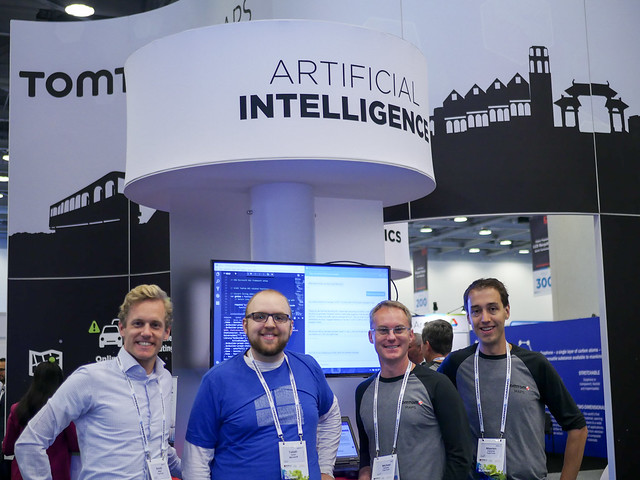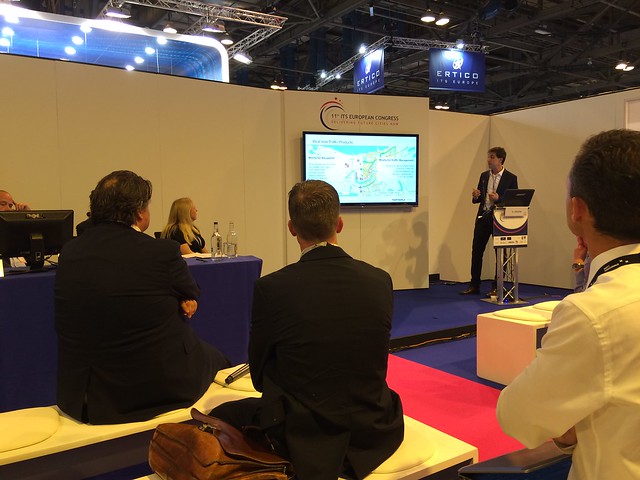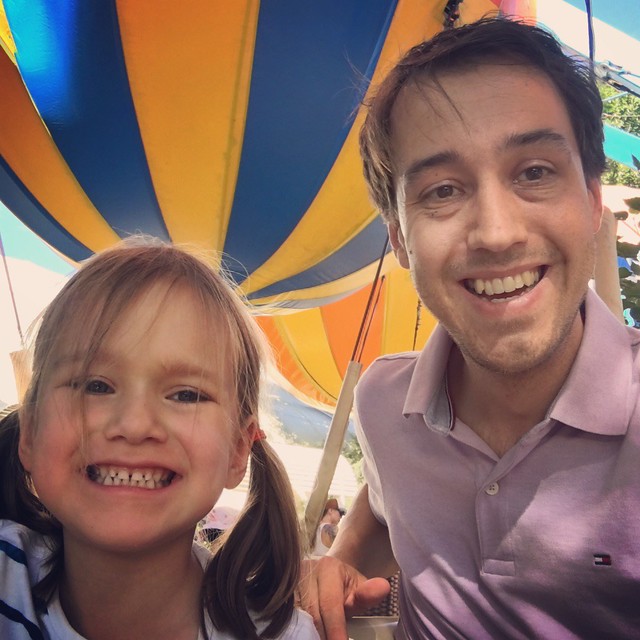TomTom Mapmakers: Meet Maarten Clements, Search API Product Manager
) Ruanna Owens
Ruanna Owens
In the third article in our Mapmakers series, we spoke with Maarten Clements, Search API extraordinaire. Learn more about his journey from childhood map-lover to leading the product vision for all things search at TomTom.
OUR MAPMAKERS SERIES
TomTom started with a simple idea: Make digital navigation accessible for everyone. Our people are what make this vision possible and we are excited to celebrate and showcase the amazing individuals who make the location technology that help people every day. As we continue to build and grow our developer community, we are highlighting the people behind the products. In our TomTom Mapmakers series, we publish an interview once a month with some of our product owners, designers, and developers to learn about their journeys, roles, and hear their insights on the future of location tech.
This month, we took the time to speak with Maarten Clements, Product Manager for the Search API, based in Amsterdam. Read on to learn about his journey, where trends in search are going, and how developers fit into the picture.
MEET MAARTEN
Our search blogs are some of our most-loved, so I’m excited to chat with you and learn more about your thoughts on a topic and product that clearly resonates with our audience. Why do you think that is?In general, there are very few global map search offerings, as it requires a huge operation and smart systems to maintain global address and business data. I think that potential customers and developers need something better with search some providers are expensive, while others may not be able to provide the required consistency in quality.
As far as market trends in general go, the need for location-based services is increasing. So many apps nowadays have some geospatial component where you can track people or deliveries in the on-demand space – I really believe there’s a huge opportunity in the market for location services that only continues to grow.
**That’s so true. Can you elaborate more on your role at TomTom? **
Our team’s challenge is to allow people to easily find the most relevant piece of information from the map, and we build search and (reverse) geocoding functionality to support this.
We serve people with different information needs. For example, searching for an address is a completely different task compared to finding the best charging point to fuel your car. Such different tasks require a different approach in all aspects of search, the user interface, the ranking algorithm, and the content that is exposed to the user.
I’m leading a team of product managers (PMs) who are defining the product strategy to solve all these different user needs in the most effective way.
 Can you share a bit about your career pathway? Or, how you got to where you are now?
Can you share a bit about your career pathway? Or, how you got to where you are now?As a child I was always fascinated by maps, and on holidays I often sat on my dad's lap planning our day trips on the map together. I also vividly remember the quarrels between my parents when trying to correctly navigate towards the south of France based on paper maps, TomTom was really a marriage saver for us!
Growing up, I developed a strong interest in technology, the good old sound of our 56k modem still brings back the feeling of excitement as it allowed me to connect remotely with my best friend and play some of the first online multiplayer games.
Eventually I moved to Delft to study electrical engineering, and graduated in one of the first master’s programs focused on data science. I continued with a PhD position on Information Retrieval, spent some time at Yahoo!, and finally got back to my passion for maps working on a touristic recommender system based on Flickr photo locations.
A little more than 10 years ago I pitched this idea to TomTom where I started in our Places organization – our team combined POI data collection with local search. Ultimately, I didn’t end up implementing my idea, but I did grow into the role for Search Product Manager. To strengthen my understanding of the market I moved into our Enterprise Business Unit where I supported pre-sales activities in Europe and spent two years in California working with some of our biggest partners.
I came back to Amsterdam at the end of 2019, where I got the opportunity to pick up the Search challenge again, and we’re now building a very cool team with a strong focus on data science.
**What is your favorite part of your role? **
I love building products that actually impact people’s lives every day. With great map search we can save people’s time, and make traffic safer by providing a clear arrival experience.
I also enjoy crafting awesome algorithms & that find the needle in the haystack, so I do still regularly get into the nitty-gritty with our development team.
**What is a challenging aspect of your role? **
The world is huge, and continuously changing. Due to COVID-19 we’ve seen more change than ever in the last year, especially for local businesses. We have to make sure we quickly respond to such changes by updating the map but also need to identify new patterns in search behavior. When users start typing we typically have to predict their intention based on just a few characters.

**Are there any trends around Search, POIs, etc. that you find interesting? **
We see that there is a continuously increasing demand for online geospatial services in every aspect of our lives. Many new start-ups have popped up in the domains of food and goods delivery and smart or shared mobility. These domains strongly depend on very accurate map search and routing, where failure is not an option.
People are also increasingly expecting more from their map applications, like paying directly for parking, ordering a Starbucks, etc. At the same time, we see people are becoming increasingly aware of all the sensitive information in the data they share through their connected devices. We need to make sure we protect people’s privacy while building awesome and smart services.
**What do you think would be the most fun country to map? **
Well, I like a challenge, different cultures, good food, and beautiful nature… so let's go to Japan! The interesting thing about mapping Japan is that the address system is completely different from what I'm used to (e.g., they don’t have street names), which is a challenge for making good search as well.
**Lastly, what do you wish people knew about our industry? **
One of the most amazing things I've learned at TomTom is that the map is no longer a static thing, but a living organism that continuously adapts itself based on all the activity from people using that map.
For example, we can detect when many people hit the brakes and automatically re-route other cars around it.
In this way we're basically building a live digital twin of the real word, and the more accurate and dynamically we can do this, the more use cases we can support with this living map. The opportunities ahead of us in the next decades are mind-boggling.

LEARN MORE
You can connect with Maarten via LinkedIn.
To learn more about the Search API, check out these links:
For tutorials on all things search, here are a few articles to explore:
- Autocomplete and Suggestions with the Search API
- Building a Responsive Location Search Component with a React Search Box
- Understanding Places and POI APIs
Lastly, don't miss our other articles in the TomTom Mapmaker series here:
- Kasia Kaczmarek, Product Manager, Maps SDK
- Dominika Spolnik, Product Manager, Map Display & Traffic APIs
Happy mapping!